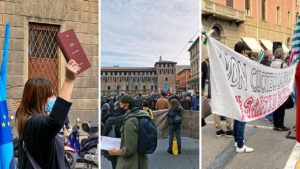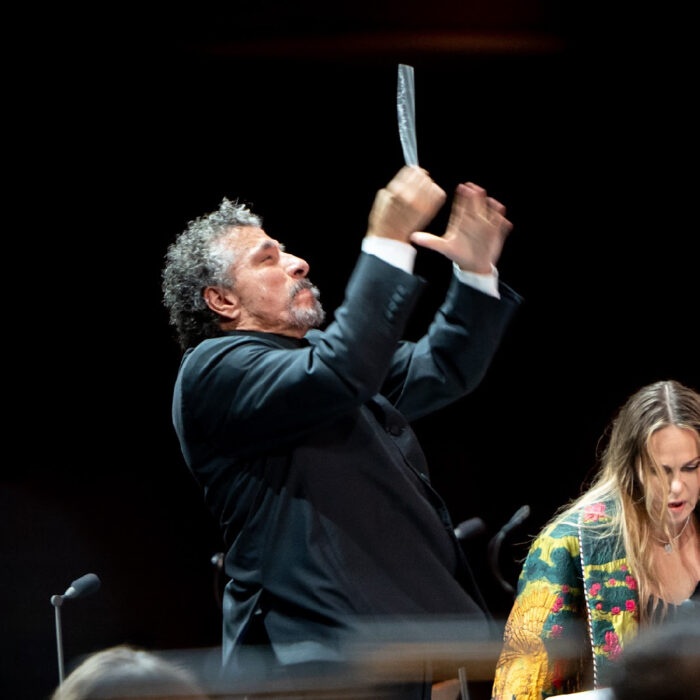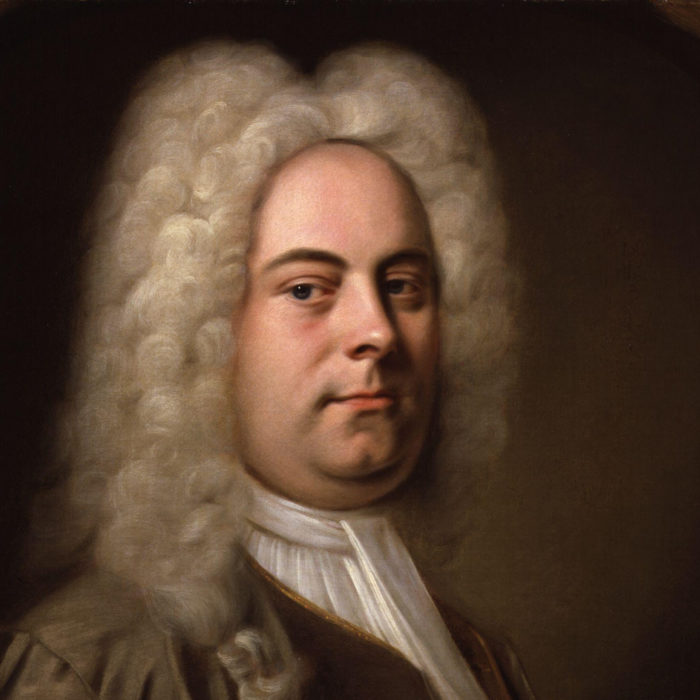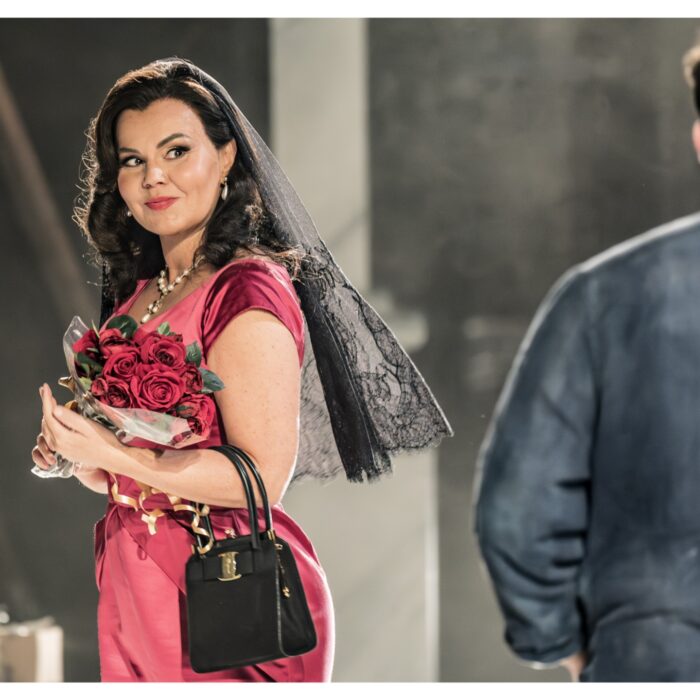
Criticism on Fridays: November Protests in Europe
A Noticeable Reminder That Opera Industry Needs to Reflect & Change
By Polina Lyapustina(Photos from protests in Bologna by soprano Federica Vitali)
Every Friday, Polina Lyapustina delivers a short essay on some of the most sensitive topics in the industry with the intent of establishing a dialogue about the opera world and its future. The choice of topics discussed, how they are researched, and how they are portrayed is conducted independently of OperaWire’s editors.
We all want to be protected and safe. And we do what’s required.
In the last few weeks, many European countries entered a new round of lockdowns. And while many of us are ready to nest comfortably, the nine-month-long industry-wide depression cannot be silently accepted by the opera world anymore.
When the musicians all around the world were ordered to stop performances for the common good and safety this last March, we were all scared and tense but determined to defeat the virus. And soon, we celebrated a drop in morbidity and mortality in May and forgot the fears, while most of the musicians still remained unable to return to normal activities after the lockdown was canceled.
With the new restrictions recently announced in many countries, musicians came out on the streets to defend their rights and the profession. In London, Munich, Milan, Barcelona, and many other cities, theatres faced protests. Yet, there are many more people who suffer from the indifference of politicians and authorities silently.
As there is no control over the situation, the concept of “common good” itself looks now more like a populist slogan behind which there is nothing. How can we ask people not to work, not to earn their living in months for our common good? How can we call it “common,” when in fact, we order them to sacrifice their normal living for others, while no evidence of how the restriction in the art industries helps was ever shown?
Arts and entertainment industries in this war against the virus were recognized as an “unessential” field; we could sit here and discuss why that isn’t true, but these days, as we see another peak in new cases and deaths, I will not discuss it. Instead, let’s simply admit that what feeds the families of millions of people is unquestionably essential. People, who are on our screens every day, cheering us with their music and singing, and who now receive nothing from it – they matter. Matter more than the entire opera industry.
I’m afraid, the industry will not survive the storm. At least not in its current form with a system that has shown to cast aside musicians and artists. A system in which theatres can only provide proper social-distancing for the orchestra level (as we saw at Teatro Real, where management later expressed surprise at their own practice). A system in which stars claim full payment while the orchestra and ensemble members have to approve new, deeper pay cuts. A system in which the institutions are focused on short-term goals, fixing but not improving (as I am seeing next door at the Lithuanian National Opera is still trying to move forward with as many performances as possible before the country goes into a second lockdown. When questioned about a plan to keep the opera house operational during the second wave during a presentation of the season in June, the company was no answer).
I see this industry dying, and I have no solution on how to save it. To this point, no one seems to have one.
And to be honest, I don’t want it to be saved.
But Art will surely survive. And I believe that with the help and control of those brave people, who stand this week for all their colleagues and the entire industry on the streets of (not only) European cities, the opera industry will be rebuilt.
With the focus on long-term goals and safety.
With proper regulation of both health protection and workers’ rights.
For those who nest in the ensembles, and those who fly free.
I hope that musicians will not calm down, once they are back on stage. The end of the pandemic, I assume, will be just the beginning of the fight for rights and safety in the opera world.



